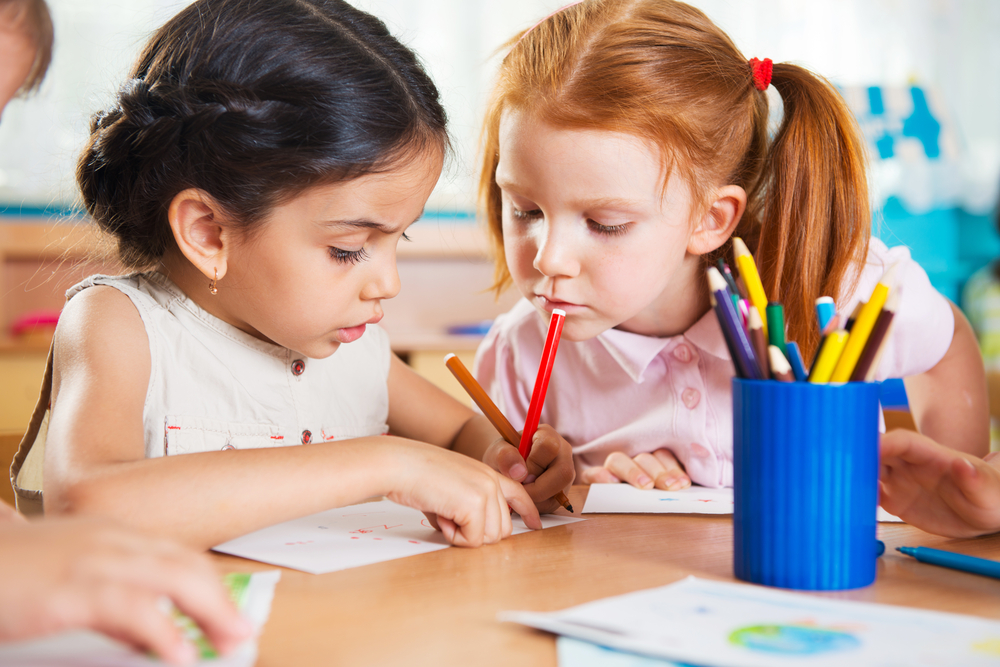The New Preschool Is Crushing Kids
Today’s young children are working more, but they’re learning less.

tep into an American preschool classroom today and you are likely to be bombarded with what we educators call a print-rich environment, every surface festooned with alphabet charts, bar graphs, word walls, instructional posters, classroom rules, calendars, schedules, and motivational platitudes—few of which a 4-year-old can “decode,” the contemporary word for what used to be known as reading.
Because so few adults can remember the pertinent details of their own preschool or kindergarten years, it can be hard to appreciate just how much the early-education landscape has been transformed over the past two decades. The changes are not restricted to the confusing pastiche on classroom walls. Pedagogy and curricula have changed too, most recently in response to the Common Core State Standards Initiative’s kindergarten guidelines. Much greater portions of the day are now spent on what’s called “seat work” (a term that probably doesn’t need any exposition) and a form of tightly scripted teaching known as direct instruction, formerly used mainly in the older grades, in which a teacher carefully controls the content and pacing of what a child is supposed to learn.Until recently, school-readiness skills weren’t high on anyone’s agenda, nor was the idea that the youngest learners might be disqualified from moving on to a subsequent stage. But now that kindergarten serves as a gatekeeper, not a welcome mat, to elementary school, concerns about school preparedness kick in earlier and earlier. A child who’s supposed to read by the end of kindergarten had better be getting ready in preschool. As a result, expectations that may arguably have been reasonable for 5- and 6-year-olds, such as being able to sit at a desk and complete a task using pencil and paper, are now directed at even younger Kindergarten Has Become the New First Grade - The Atlantic:
